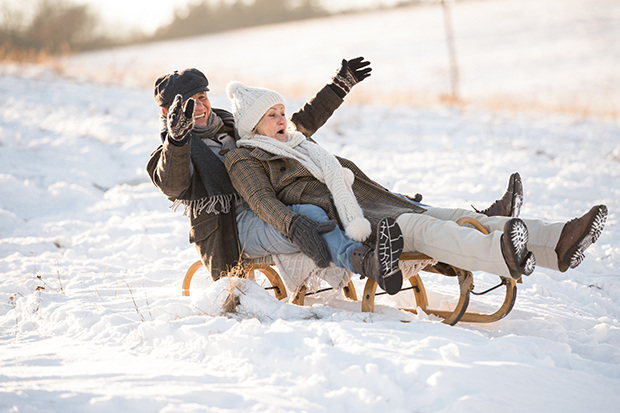
By Jodi Mines, Heartland Health Care Center — Moline
As the long, lazy days of summer have faded into crisp evenings of autumn, preparations for the upcoming holiday season are once again upon us. Gift lists, party invitations, and decorating plans complicate already hectic schedules along with increasing stress and tension levels. The holiday season may also bring financial worries, loneliness, memories of lost loved ones, and other feelings of sadness. These feelings are especially prevalent among older adults, but the good news is that many symptoms of the “Holiday Blues” are manageable.
Although the holidays are supposed to be joyous and merry, many older adults feel the loneliest around this time of year. Memories of a deceased spouse or other family member may cloud one’s thoughts along with other factors, such as a recent move from a life-long home or the inability to travel to distant relatives. “We realize how difficult the holidays can be for many of our patients,” Jodi Mines, Admissions Director at Heartland Health Care Center said. “Our staff strives to involve our patients in events and activities throughout the season in hopes of relieving lonely or sad feelings.”
Another possible source of holiday depression may be attributed to Seasonal Affective Disorder (SAD), a mood disorder associated with depressive episodes and related to seasonal variations of light. According to the National Mental Health Association, SAD was first observed in 1845 but was not officially named until the 1980s.
The seasonal changes of sunlight have been documented in animal research in regard to hibernation and reproductive cycles, and now scientists believe that these same variations may affect humans as well. Melatonin, a sleep-related hormone secreted by the pineal gland in the brain, has been linked to SAD. This particular hormone is produced in greater amounts in the dark and is believed to cause symptoms of depression. Therefore, as winter days become shorter and darker, the production of this hormone increases.
Winter Blues
Whatever the reason for feeling “down” may be this upcoming holiday season, simple remedies and treatments are available. Here is a brief list of suggestions for battling the blues:
- Exercise — walking, low-impact aerobics, daily outdoor activity
- Relaxation — yoga, meditation, writing, reading
- Make a “gratitude list” — things for which you’re thankful
- Get more light. Go outdoors, or work in well-lit rooms
The National Mental Health Association also offers tips to maintaining a more positive attitude and mindset during the holiday season:
- Let go of the past! Don’t be disappointed if your holidays are not like they use to be. Life brings changes. Each holiday season is different and can be enjoyed in its own way. You set yourself up for sadness if everything has to be just like the “good old days.”
- Look toward the future.
- Don’t be afraid to try something new. Celebrate the holidays in a way you have not done before.
- Spend time with people who are supportive and care about you. Make new friends if you are alone during special times. Contact someone you have lost touch with.
Episodes of depressed mood are fairly common during the holidays, however, if symptoms persist for weeks or months afterward, then a medical professional should be consulted.
For more information, contact Jodi Mines, Admissions Director, Heartland Healthcare Center, 833 16th Ave., Moline, IL.
309-764-6744 or 309-756-8315.

